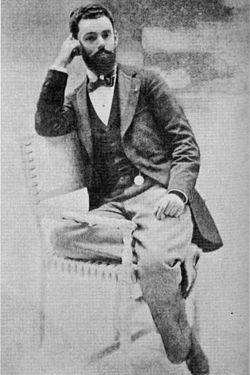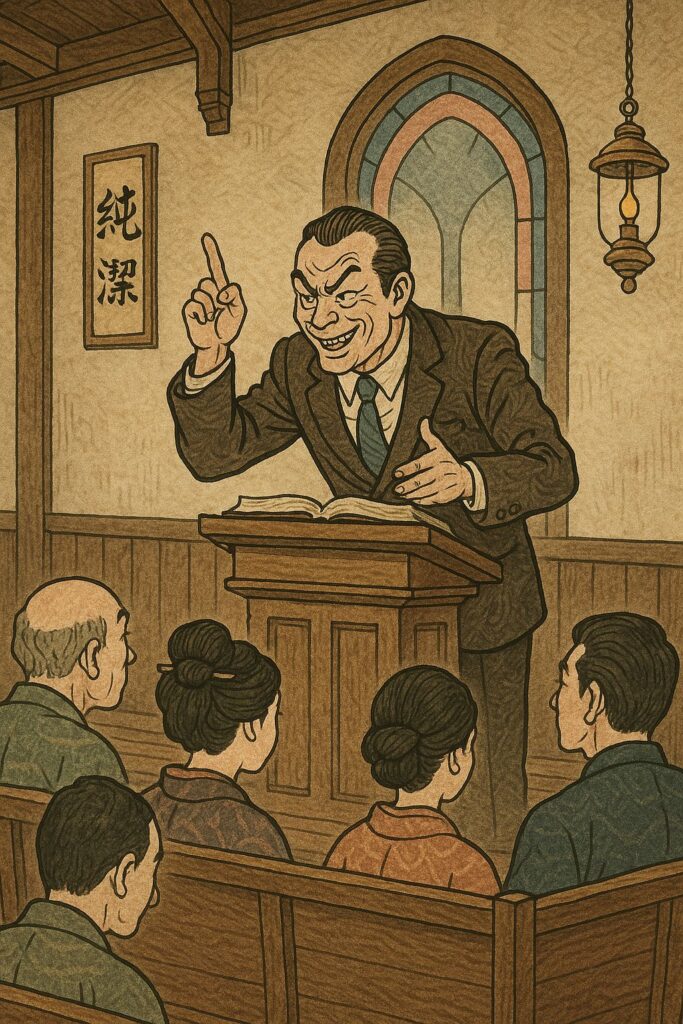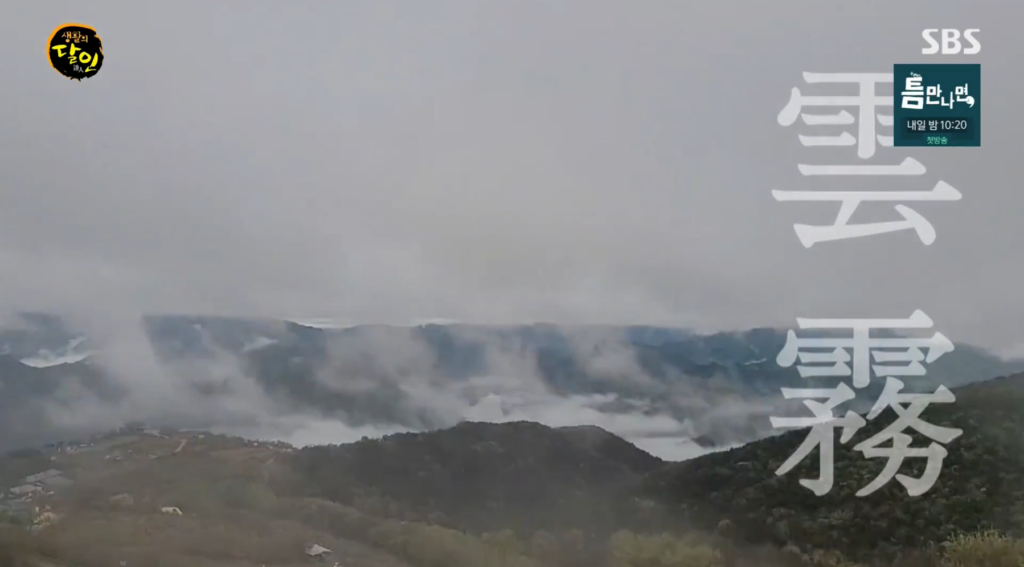Category: Theology Proper > The Existence of God > General revelation
Text: Psalm 19:1-6; Romans 1:18-20
The Word of God does not begin with a Socratic question of inquiry, or an argument, but a proclamation: “In the beginning God created the heavens and the earth.” There wasn’t a Big Bang in the beginning, but the Creator God who has always been, is, and always will be. (Those who put their belief in the religion of godless universe while claiming to be Christians are contradicting themselves because they also believe that death was in the world even before a man came into being—some even believe in having monkeys as their ancestors! The Bible gives us no other alternative for the salvific plan of God through Jesus Christ. Death came because of the rebellion of a man.)
There is my favorite Korean podcast that often features intellectuals from various fields, and recently it featured a guest named Kim Yong-ok, or popularly known as Do-ol in Korea. In past set of lectures that was widely popular in Korea, he distinctly brought into question the Biblical account of Jesus Christ with questionable apocryphal texts. I was saddened to see him featured on this podcast, but also remembered Jesus’ words that the world hates him and his followers. Not only that of Jesus, but also the very existence of God Himself is often brought into question in today’s world.
In our age of skepticism, God’s existence is often treated as a debatable theory, and sadly, even so-called pastors seem to hold humanistic beliefs while feigning theocentric views in their sermons. But the Bible never presents God’s existence as optional or theoretical. Instead, it declares: “The heavens are telling of the glory of God; And the expanse is declaring the work of His hands” (Psalm 19:1, LSB).
God is not silent. He has spoken—not only through the Bible, but also through the very world you live in. And that voice of creation is unceasing and unavoidable.
1. The reality of God’s revelation in creation
Psalm 19 tells us that “day to day pours forth speech, and night to night reveals knowledge” (v.2). Creation is a 24/7 preacher. It doesn’t use words or language, but it communicates powerfully and universally. Look at the stars: They declare vastness, order, and beauty—evidence of an infinite Creator. Those who espouse mechanistic view of the universe believe simplistically that because we can look so far beyond our own Milky Way that there’s very little else that we can discover about our own universe. This is a pure hubris that verges on being comical, because even though we have a lot of conjectures about how the universe came to be, none of them are empirical, and they are all based on fundamental, axiomatic beliefs that are no different from a religious belief at the baselines. For example, the advances in quantum mechanics have essentially superseded some fundamental assumptions that have been part of the Standard Model of particle physics (e.g. point-like charges to quark fields, Maxwell’s equations to QED, Coulomb’s law to gauge bosons, Newtonian mechanics to probabilistic wavefunctions & quantum fields, etc.) In this way, in spite of many believing that advances in empirical and parts of theorical science replacing the traditional worldview, it has merely enhanced it.
One of the primary textbooks of Confucianism, The Thousand Characters Book (千字文) that has been in use for over 1,500 years, starts out with words 天地玄黃宇宙洪荒, “The heavens are above and it’s black, and the earth is below and it’s brown. The space time is wide and vast” — it’s merely a description of the world that God has created, and it goes on to describe the fundamental changes and orderliness of the world we live in. We find keen observations in other non-Christian cultures reaffirming the orderliness and design of the Creator in the nature!
日月盈昃 辰宿列張. Feel the warmth of the sun, and the regular changes to the moon, and witness how perfectly God has placed the moon and the sun from the earth, and see how the vast number of stars are spread out across the sky: a faithful witness to God’s provision and purpose.
Hear the wind rustle the trees, or see the birth of a child: all declare the glory of a personal, intelligent God.
The sun is described in verses 5–6 as moving across the sky with joy and strength. It is not only a light-giver but a symbol of God’s sustaining power. There is no part of the earth untouched by its heat, and likewise, no soul untouched by the witness of God’s creation. This is also reflected in 千字文, and all other cultures that carefully observed the nature. They all testify to the intricate and sophisticated design and workings of the nature.
2. The suppression of God’s revelation by fallen man
But despite such clear witness, evident across all different cultures of men, why do people reject God?
Romans 1:18 says: “For the wrath of God is revealed from heaven against all ungodliness and unrighteousness of men who suppress the truth in unrighteousness.”
This is not ignorance. This is pure rebellion. Humanity doesn’t lack evidence—it suppresses it. People deny God not because He is unclear or hard to understand, but because they love their sin more than the truth. The refusal to acknowledge God is an act of the will, not of reason. One of the best reasoning mind in history, Isaac Newton—credited with contributing in a major way to the field of mathematics and physics—was also a serious biblical scholar who reaffirmed the Biblical authority, and had made contributions to the eschatology, biblical chronology, and the methods of bible study.
We must be careful here—the rebellion is not exclusive to just “those people out there.” All of us, before Christ saved us, suppressed the truth. And even now, we are tempted to live functionally as if God is not present, not watching, not judging.
3. The clarity and universality of general revelation
Paul continues in Romans 1:19–20:
“That which is known about God is evident within them; for God made it evident to them.”
What does this mean?
Internally, God has placed a conscience—a moral compass—that testifies to right and wrong. Externally, creation testifies of His eternal power and divine nature. These are not obscure hints. Paul says God’s attributes are clearly seen, so that all are without excuse. No one can stand before God and say, “I didn’t know You were there.” Every sunrise, every mountain, every heartbeat is a witness to Him.
This is why missions are urgent—not because people are innocent without the Gospel, but because they are guilty. General revelation is enough to condemn, but not to save. Only the Gospel of Jesus Christ can save.
4. Response to the God who has spoken
So, how should we respond? Listen. We live in a noisy world. Phones, media, politics—these drown out the voice of God. Slow down. Step outside. Gaze into the night sky. We need to ask God to renew our sense of awe, and worship Him with this awe.
Repent. Are you living yourself as if God is silent or absent? Turn from functional atheism and humble yourself before Him.
Worship. Give glory to God for the gift of creation—and even more for the gift of His Son.
Psalm 19 goes on to speak of the Word of God (vv.7–11) and culminates in a prayer (v.14):
“Let the words of my mouth and the meditation of my heart be acceptable in Your sight, O Yahweh, my rock and my Redeemer.”
God is not distant. He is not silent. He is there—and He has spoken. The sky preaches His glory. Your conscience whispers His law, just as all those careful observers of nature testifies in all those writings. The Scriptures proclaim His will. And Jesus Christ reveals His love.
Let us bow in reverence, lift our eyes in worship, and open our mouths in praise. The God who is there is also the God who saves.







